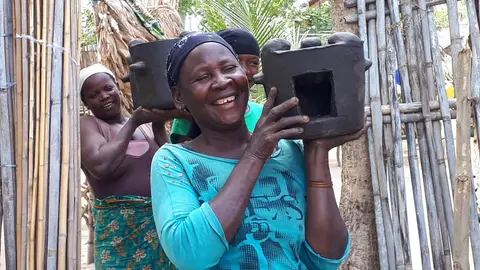A pioneering programme in Europe in translational research is born

One of the most complex problems in international biomedical research is how to transfer the knowledge generated in research centres to clinical practice, and vice versa, in the most efficient way and in the shortest possible time. This process, known as "translational research", has been tested around the world with different formulas that include locating fundamental research centres in hospitals to foster contact between the two areas and the development of joint projects.
IRB Barcelona's innovative proposal, within the framework of the TRIP (Translational Research Innovation Programme) pilot programme, is to promote research groups that are led by at least one basic researcher and a physician who combines research with clinical practice. The TRIP-Clinics project has been promoted with the support of the "la Caixa" Foundation and the Department of Health of the Generalitat de Catalunya.
In this first call, the "la Caixa" Foundation is funding two of the three laboratories that have been set up with 1.2 million euros over three years. These are the laboratories formed by Dr. Roger Gomis, at IRB Barcelona, with Dr. Aleix Prat, Dr. Laura Angelats and Dr. Sonia Guedan at IDIBAPS; and Dr. Salvador Aznar Benitah, at IRB Barcelona, with Dr. Cristina Saura and Dr. Isabel Pimentel, at the Vall d'Hebron Institute of Oncology (VHIO). The Department of Health of the Generalitat de Catalunya subsidises the part of the TRIP Clinics sub-programme, which has made possible the creation of the laboratory formed by Dr. Cristina Mayor-Ruiz, at IRB Barcelona, and Dr. César Serrano, at the VHIO.
"This project will allow us to accelerate the translation of basic research into clinical practice, so that it can have an impact on society sooner. Bringing together fundamental and clinical groups in a single space to address complex diseases, such as cancer, represents a paradigm shift with respect to what has been done until now," says Dr. Francesc Posas, director of IRB Barcelona.

The TRIP programme is divided into two main lines. On the one hand, the TRIP - Clinics sub-programme is based on defining joint research projects between researchers at IRB Barcelona and medical researchers at any hospital in Catalonia. This promotes fundamental and clinical research in the same environment, while facilitating joint access to knowledge, technological and applicability resources.
The proposal is the first of its kind in Spain and a pioneer in Europe. The expected end result of this integration is to develop new diagnostic or therapeutic tools or improve existing ones, which may lead to new patents, the formation of biotechnology-based companies or the licensing of products.
The second line of the programme envisages the incorporation of junior group leaders to start new laboratories focused on emerging strategic areas (TRIP - Preclinical sub-programme). The lab leaders are selected by an international committee. The researchers who have recently opened a lab at IRB Barcelona as part of the TRIP programme are Dr Stefanie Wculek, who leads a lab in immunology and who has also joined thanks to the support of 900,000 euros from the "la Caixa" Foundation, Dr Direna Alonso-Curbelo, who investigates inflammation and its relationship with cancer and ageing, and Dr Alejo Rodriguez-Fraticelli, who focuses his studies on epigenomics and cell lineage tracing.
These areas are considered priority areas and could be defined as scientific niches of opportunity.
INFORMATION ON THE THREE NEW LABORATORIES IN THE TRIP PROGRAMME
Target: Metastatic breast cancer
Breast cancer can be fatal if it spreads to other organs, especially if it is associated with drug resistance. Surprisingly, most metastases to distant organs are not caused by the primary tumour cells, but go through a preliminary stage in the bone, where they acquire resistance to treatment, before spreading.
The lab that will be co-directed by ICREA researcher Dr. Roger Gomis, head of the Growth Control and Cancer Metastasis lab at IRB Barcelona, and Dr. Laura Angelats and Dr. Sonia Guedan, at IDIBAPS, will try to elucidate this process, which cannot be fully explained by changes in the DNA of metastatic tumour cells, but requires a more dynamic adaptation to their changing environments.

"Our goal is to define and understand at the molecular level this previously underestimated plasticity of breast cancer cells - why and how does resistance to standard treatment allow breast cancer tumour cells to spread to other organs? We believe that by identifying the basis of adaptive multi-organ dissemination we may be able to prevent or reverse metastasis of terminal breast cancer," explains Dr Gomis.
The researchers will use genetic engineering techniques to modify patients' immune cells so that they can recognise and eliminate these drug-resistant breast cancer cells. This type of therapy, known as CAR-T, has revolutionised the treatment of haematological cancers. The aim of this project will be to translate the power of CAR-T therapy to the treatment of breast cancer to provide a novel therapeutic option for patients with incurable breast cancer.
Goal: A new approach to treat sarcomas of the gastrointestinal tract
Many types of tumours are characterised by the abnormal function of cell membrane proteins (Receptor Tyrosine Kinases or RTKs). Treatments for these cancers are based on RTK inhibitor drugs. These inhibitors provide significant clinical benefit in the short term, but the vast majority of patients develop resistance to these treatments in the medium to long term. In response to this clinical need, Dr. Cristina Mayor-Ruiz, head of the Targeted Protein Degradation and Drug Discovery lab at IRB Barcelona, and Dr. César Serrano, head of the Translational Sarcoma Research group at VHIO, have launched a project to find alternative therapies, focusing first and foremost on sarcomas of the gastrointestinal tract.

Targeted protein degradation is a new pharmacological strategy that makes use of the process by which cells specifically mark unwanted or non-functional proteins for destruction in the "protein shredder" called the proteasome. The research team will explore the potential of degradative drugs to trigger the elimination of relevant proteins as a therapeutic target against gastrointestinal sarcomas.
"Targeted protein degradation offers us an alternative to target these RTK-dependent tumour types without resistance developing. Through a systematic drug screening approach, we hope to find promising candidates," explains Dr Mayor-Ruiz. The project involves the evaluation of drug candidates in new cell and animal models developed by the group. The new molecules will be tested preclinically and could lay the groundwork for future clinical trials in humans.
Aim: Metabolism of metastasis
Cancer cells reproduce at high speed and consume high levels of sugar in the process. However, metastatic cells, i.e. cells that have the ability to escape from the primary tumour and colonise other organs in the body, obtain energy from the metabolism of fats, mainly palmitic acid. The project undertaken by Dr. Salvador Aznar Benitah, head of the Stem Cells and Cancer Lab at IRB Barcelona, together with Dr. Cristina Saura and Dr. Isabel Pimentel at VHIO, considers a new way to fight metastatic tumours: by directly blocking their energy source.

"One of the most urgent metastatic diseases to address is metastatic triple-negative breast cancer, which often does not respond to treatment and has a very poor prognosis. A major problem is that the disease has different biological bases that vary from patient to patient, and this complicates the search for appropriate treatments," explains Dr Aznar Benitah.
The team will investigate the relationship between metastatic tumour cells, the Schwann cells, which corrupt the metabolism of the tissue around the tumour for the benefit of the tumour. The overall aim of the project is to determine at the time of diagnosis which patients with triple-negative breast cancer could benefit from a new immunotherapy based on metabolic immune reprogramming instead of (or in addition to) conventional inhibitors.










